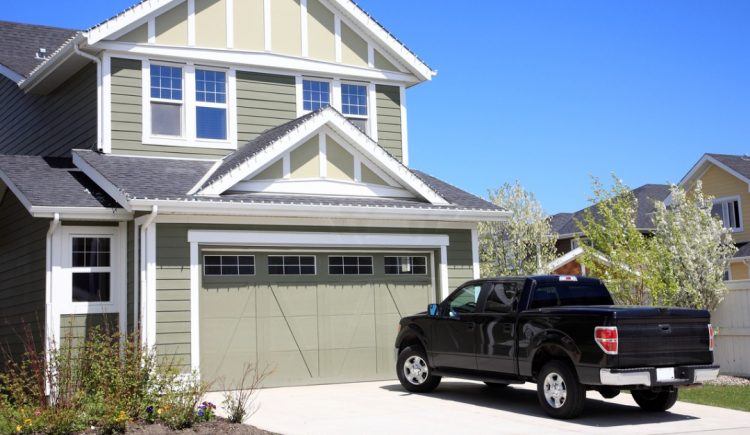If you don’t have a garage, or you have one that isn’t large enough to hold all of your family’s vehicles, you may park on your driveway on a regular basis. Under some circumstances, that can cause damage, particularly if the driveway has already been damaged or weakened by another issue.
Too Much Weight Can Damage Your Driveway
Excessive weight can cause a driveway to crack and potholes to form. A large vehicle, such as a camper or a truck that holds tools and equipment used for work, can cause damage to a driveway if it’s parked there for an extended period of time. Delivery trucks, moving trucks and multiple vehicles can also damage a driveway.
If you own a camper, a large truck or van that carries a heavy load, or another type of heavy vehicle, park it on the street instead of in your driveway. Avoid parking multiple vehicles on the driveway at the same time. If you have guests, encourage them to park on the street, if possible.
Snow Tires Can Cause Holes in Your Driveway
Snow tires can help your vehicle navigate snowy and icy roads in the winter, but studded tires can create small holes in your driveway’s surface. This is more likely to happen with an asphalt driveway than with one made of concrete. Resealing your driveway can help prevent damage, but it’s still a good idea to avoid driving on it with studded snow tires.
Other Factors Can Damage a Driveway
The amount of weight a driveway can bear depends on the material it’s constructed with and the strength of the material. If you have a new driveway installed at your home, find out how much weight it’s designed to handle.
Poor installation is a common source of driveway damage. Do your research and hire a qualified contractor who uses high-quality materials.
If trees are planted too close to a driveway, their roots can eventually grow under the driveway. When that happens, they can cause damage underneath and cracks at the surface. Keep that in mind if you’re thinking about planting trees in your yard.
Prolonged sun exposure and natural movements of the soil under a driveway can cause cracks to form. If water seeps into cracks, they can grow even larger. Water under a driveway can erode the soil and weaken the driveway’s supporting structure.
Measures that you take to remove snow and ice in the winter can also damage your driveway. Using a metal shovel can scratch the surface. Rock salt can cause a driveway to decay at a faster rate, and water that gets into cracks can freeze and cause even larger cracks to form.
Protect Your Driveway From Damage
Parking on your driveway can damage it, but that’s not the only possible source of problems. Multiple factors can combine to produce large cracks and potholes. If you understand the myriad ways that a driveway can become damaged, you can avoid many of them.











